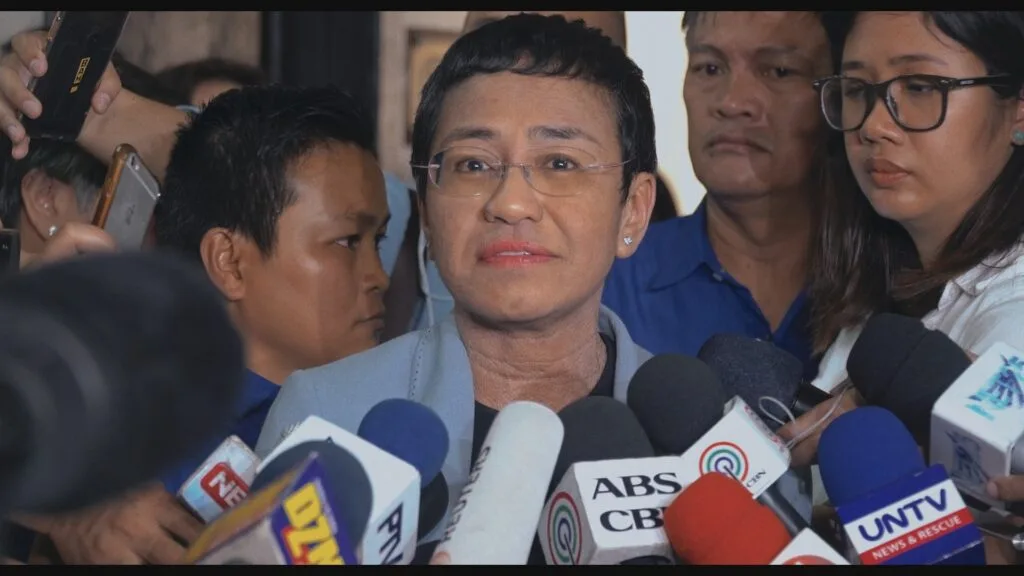A Conversation with Nobel Peace Prize Winner Maria Ressa

December 9, 2021
Journalist Maria Ressa, a 2021 Nobel Peace Prize winner and the subject of the documentary A Thousand Cuts, joined director Ramona S. Diaz and FRONTLINE’s executive producer, Raney Aronson-Rath, for a special conversation prior to the Nobel ceremony.
Ressa and her fellow Nobel Peace Prize laureate Dmitry Muratov are the first journalists to receive the prestigious award since 1935. Ressa and her staff at the independent news site Rappler in the Philippines have been at the forefront of reporting on both President Rodrigo Duterte’s bloody drug war and the rapid-fire spread of online disinformation in support of Duterte. A Thousand Cuts chronicled how Ressa and Rappler became top targets in Duterte’s crackdown on the news media — and how Ressa vowed to “hold the line” in the face of numerous court actions and online harassment.
With Ressa now a Nobel Peace Prize winner for her efforts, she joins Diaz and Aronson-Rath to discuss disinformation, the importance of journalism and press freedom, the future of democracy in the Philippines, why she believes the world is in the midst of “a global rise in fascism” similar to the last time a journalist won a Nobel Peace Prize, and how “we need to make sure facts survive.”
“When you live in a world without facts, you can’t have truth. You can’t have trust,” she said. “And when you don’t have that, your shared reality is torn apart.”
A Thousand Cuts is now streaming on FRONTLINE’s website, the PBS Video app and FRONTLINE’s YouTube channel. After Philippine distributors and TV broadcasters did not license the film, FRONTLINE secured full streaming rights in the country so that it would be available for the Philippine public to view via FRONTLINE’s platforms.
Want to be notified every time a new FRONTLINE podcast episode drops? Sign up for The FRONTLINE Dispatch newsletter.
Latest Documentaries
Explore
Policies
Teacher Center
Funding for FRONTLINE is provided through the support of PBS viewers and by the Corporation for Public Broadcasting, with major support from Ford Foundation. Additional funding is provided the Abrams Foundation, Park Foundation, John D. and Catherine T. MacArthur Foundation, Heising-Simons Foundation, and the FRONTLINE Trust, with major support from Jon and Jo Ann Hagler on behalf of the Jon L. Hagler Foundation, and additional support from Koo and Patricia Yuen. FRONTLINE is a registered trademark of WGBH Educational Foundation. Web Site Copyright ©1995-2025 WGBH Educational Foundation. PBS is a 501(c)(3) not-for-profit organization.



















